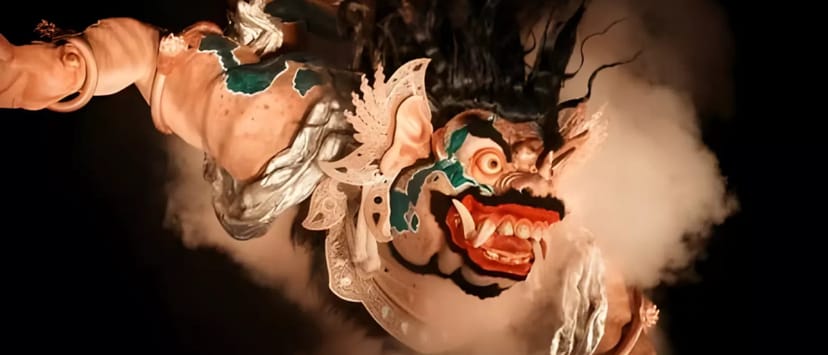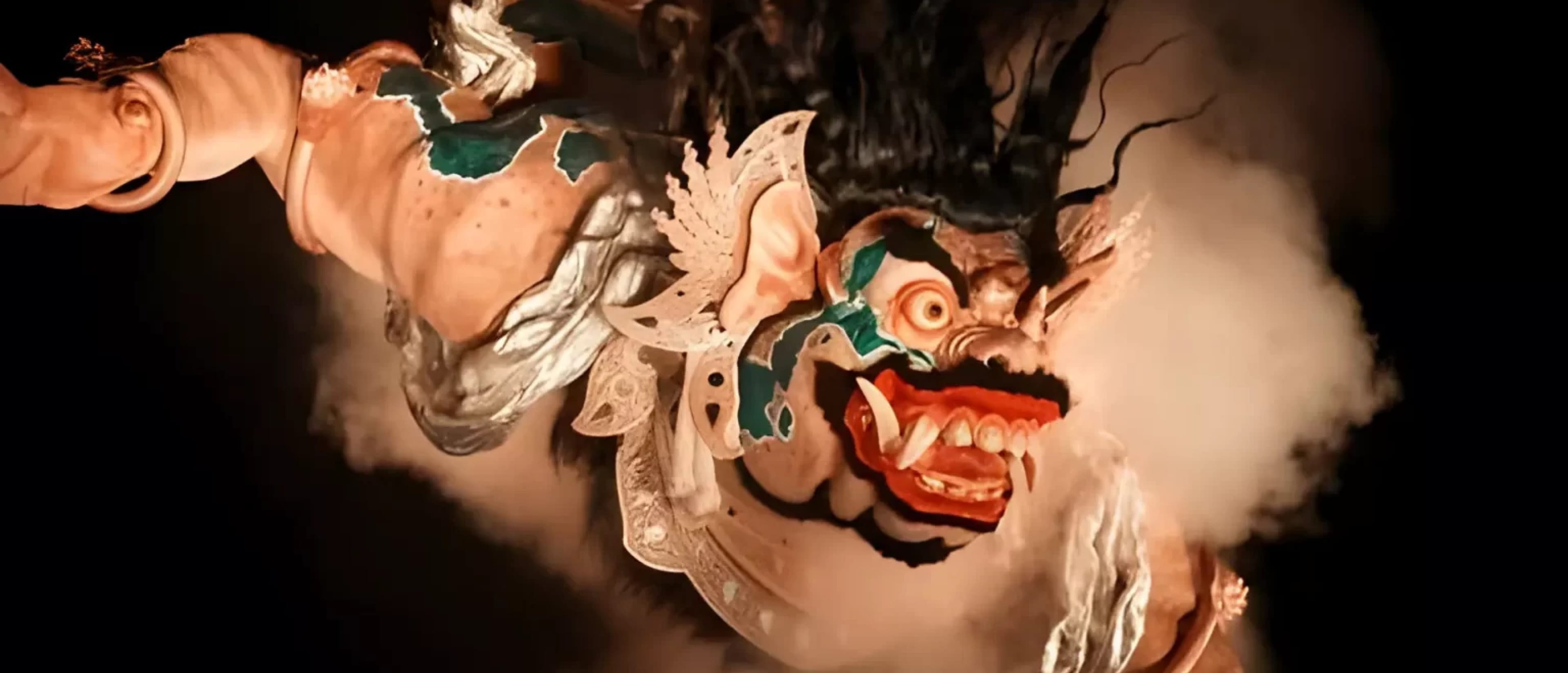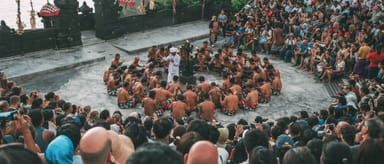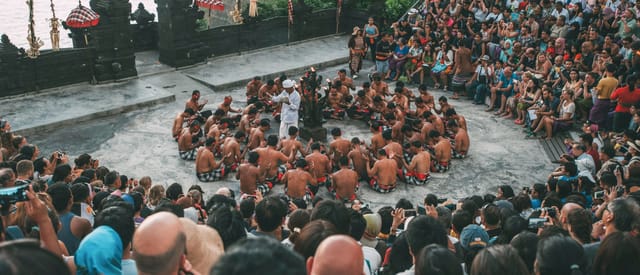There’s a time of the year when the lively island of Bali goes completely silent for 24 hours. No cars on the roads, no planes in the sky, and even the beaches sit empty. It's Nyepi, Bali's Day of Silence, where the Balinese celebrate their new year in stillness unlike anywhere else in the world. Here we’ll uncover anything you need to know about Nyepi and guide you to experience the sacred tradition of Balinese people.
What is Nyepi?

Courtesy Dok. Kemenparekraf
Nyepi marks the beginning of the Balinese Hindu New Year according to the Saka lunar calendar. The centuries-old ritual welcomes its new year with silence and darkness as a complete reset for both the island and its people. The people dedicated the day for self-reflection, meditation, and cleansing. It also marks the new beginnings or opportunities to start fresh from the negativity and mistakes of the past year.
During the 24-hour period, the day follows four strict prohibitions called Catur Brata Penyepian, which forbid fire/light, work, travel, and entertainment. From 6 AM to 6 AM the following day, all transport options are shut down, businesses are closed, and everyone stays indoors as the island becomes completely silent. And to ensure these rules are followed, local security officers known as Pecalang patrol the streets.
When is Nyepi?

Courtesy Ary Hastono
The upcoming date of Nyepi falls on Thursday, March 19, 2026. Unlike most holidays you find, Nyepi’s date changes every year as it is calculated according to the Balinese lunar-based Saka calendar. And it’s marked the day after the new moon (Tilem Kesanga) in the ninth month, which usually takes place in March.
Knowing these dates will help you either to experience Nyepi or to schedule around it. For those of you planning ahead, these are the upcoming Nyepi dates:
Nyepi 2026 – March 19th
Nyepi 2027 – March 8th
Nyepi 2028 – March 26th
Nyepi 2029 – March 16th
The Rituals Leading to Nyepi
The journey to silence begins several days before with vibrant rituals that prepare the island spiritually for the Day of Silence. Together, they form a series of rituals designed to purify the island and its inhabitants, restore cosmic balance, and ward off negative forces.
Melasti Ritual

Courtesy Robert Harding
The Melasti Ritual takes place three to four days before Nyepi. Balinese Hindus dressed in white will gather by the sea, carrying sacred temple objects for purification and bringing offerings. The ritual symbolizes washing away the previous year's sins and negativity.
Bhuta Yajna (including Ogoh-Ogoh Parade)

Courtesy CatwalkPhotos
And just the night before Nyepi, it's when the Bhuta Yajna ritual is performed. As the sun sets, Balinese Hindus place elaborate offerings at crossroads and temples, believed to be gathering places for evil spirits.
Part of the ritual is the famous Ogoh-Ogoh parade, where giant papier-mâché in the form of demon statues are carried through the streets along with loud noise before being burned to drive away evil. The Bhuta Yajna ritual is believed to cleanse negative energy and restore balance between God, humans, and nature before the new year starts.
Experiencing Nyepi as a Visitor

Courtesy Tri Widiyanti/detikBali
During Nyepi, you’ll have to remain in your hotels or villas for 24 hours as they become your self-contained bubble to comfortably observe Nyepi while respecting its value. Many hotels or villas have their special Nyepi package, offering you in-room or prearranged meals and wellness activities such as meditation or yoga classes. And as Bali falls into silence, you’ll be left with natural sounds from the surroundings, and clearly you don't want to miss skygazing the clear night sky.
As you may have heard before, rules are relatively the same as for the locals. No going out from your hotel or villa grounds, keep your noise minimal, dim lights after dark, and respect that normal services won't operate as usual. Even so, with all of these restrictions, many travelers find it peaceful and refreshing to take a genuine break before going back to their hectic and busy lives.
Practical Travel Tips
Best time to visit to experience Nyepi – If you want the full experience, arrive at least three days before to witness Melasti processions and the ogoh-ogoh parades. This gives you enough time to explore and understand the cultural buildup.
Booking accommodations in advance – As one of the most anticipated cultural events, you’ll want to book at least 3 months ahead to secure your preferred accommodation and avoid higher prices. And also make sure you confirm what your accommodation provides during Nyepi regarding meals, activities, and staff availability, to make sure everything goes well during your stay.
Stocking up on essentials before the day – Two days before Nyepi, stock up on food, water, medication, and other essentials to avoid running out of items and the long queue of last-minute shoppers. And it’s wise to have your cash ready ahead of time since ATMs often run out before Nyepi, and it’ll take some time before they get refilled, which can be tricky if you need cash for your trip.
Respecting tradition as a guest – Everyone on the island is expected to participate in this tradition. Think of yourself as a guest and embrace the experience by staying indoors and keeping lights low after dark, as well as refraining from work, noise, and entertainment instead of trying to get around these rules.
FAQs
Can tourists go outside during Nyepi?
No. Everyone must remain indoors for the full 24 hours. You can move around your hotel or villa property but cannot leave the grounds. Even walking along the beach isn’t allowed.
Is electricity or the internet turned off?
Electricity stays on, but lights should be dimmed in the evening. And while the internet works in tourist areas, some regions may experience complete outages. Plan as if you'll have no connection.
Are hospitals and emergency services open?
Yes, hospitals and emergency services remain operational. You can reach them by dialing 112 for any emergency.
What happens if someone breaks the rules?
Tourists typically receive warnings first, but repeated or serious violations can result in fines. So it’s best to avoid any violation.What’s the day after Nyepi like?
The day after Nyepi, Bali returns to normal as businesses reopen, streets become lively again as people continue their activities, and families come together for gatherings and social events. This period is also known as Ngembak Geni, a day of spiritual renewal and asking forgiveness among family and friends for Balinese Hindus.
In the age of constant connectivity, Bali shows what no other place could. Nyepi brings millions of people to complete stillness for a full day. By the next morning, the streets that were once lively feel strangely quiet and empty. It’s what Bali truly is without the beach clubs or shopping streets you may be familiar with. So, whether you see it as spiritual practice or cultural immersion, this Day of Silence reveals a sacred tradition to every visitor willing to experience it.









